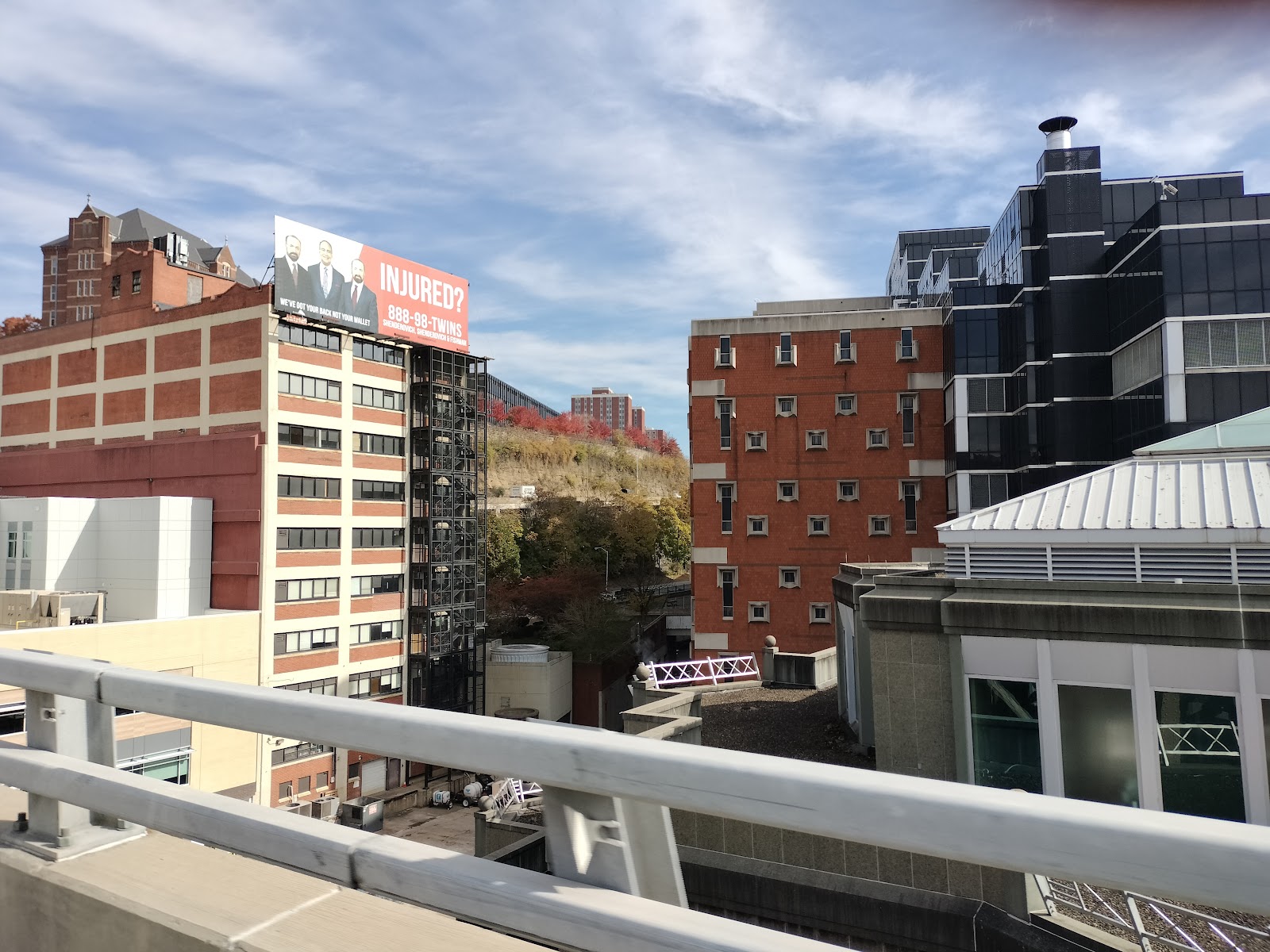Renewal

Overview
Renewal is an accredited substance abuse treatment center that provides inpatient detoxification, for men and women from 18+ years of age. As part of their special programs, Renewal To help patients achieve sobriety, Renewal provides intake assessments. Afterward, patients receive 12-step facilitation, family counseling, and individual psychotherapy during treatment. Renewal is located in Pittsburgh, Pennsylvania, providing treatment for people in Allegheny County, accepting cash or self-payment, private health insurance, and federal military insurance (e.g., tricare).
Renewal at a Glance
Payment Options
- Cash or self-payment
- Private health insurance
- Federal military insurance (e.g., TRICARE)
- Medicaid
- Aetna
Assessments
- Comprehensive mental health assessment
- Comprehensive substance use assessment
Age Groups
- Young adults
- Adults
Operation
- Treatment duration
- Private for-profit organization
Accreditations
NAATP:

Established in 1978, the National Association of Addiction Treatment Providers (NAATP) is a professional organization dedicated to advocating for and representing entities involved in addiction services. NAATP is committed to advancing the field of addiction services and ensuring that top-tier addiction treatment remains both accessible and widely available.
Treatment At Renewal

Conditions Treated
Mental health treatment:
Mental health facilities offer a safe space for individuals to get specialized care. Trained experts create personal plans using therapies, possibly including medication. The goal is to help individuals cope better and lead fulfilling lives, with constant support and a community feel.
Alcoholism:
Alcohol addiction is a disease that changes the way the brain works. It causes negative emotions, impulsive behavior, cravings and withdrawal symptoms. Treatment for alcohol addiction includes supervised detox, counseling and therapy, and support group participation. Rehabilitation does not cure alcoholism. Instead, it helps the individual manage their addiction, restore their functioning, and well-being.
Opioid Addiction:
Opioid rehabilitation centers are dedicated to assisting individuals overcoming opioid dependence. They cater to those battling addiction from illicit opioids such as heroin, as well as those addicted to prescription medications like oxycodone. These facilities may provide a holistic approach that encompasses both physical care, which often involves medical detox and ongoing medical assistance (including medications), and psychological care through comprehensive therapy to tackle the root causes of addiction.
Substance use treatment:
Substance abuse treatment programs can help to address addiction and, if relevant, any co-occurring mental health conditions. Programs include outpatient, inpatient, dual-diagnosis, and partial hospitalization. The addict will receive therapies like cognitive behavioral therapy, or dialectical behavioral therapy, and sometimes complementary therapies like acupuncture and mindfulness-based therapy. By attending skills training and recovery groups you’ll build a strong foundation for your recovery and strengthen your support network, increasing your chances of long-term recovery success.
Co-occurring Disorders:
Dual-diagnosis rehabilitation centers usually offer the most suitable approach for addressing concurrent mental health and substance abuse conditions. Within these facilities, a team of medical and behavioral professionals is typically assembled, employing diverse interventions and cultivating an optimal therapeutic environment to enable you to attain and maintain lasting recovery. The treatment regimen often encompasses evidence-based therapies, such as cognitive behavioral therapy, complemented by recovery support gatherings, 12-step program facilitation, skills development, and group therapy.

Levels Of Care
Detoxification:
Detoxification, often shortened to detox, is like giving the body a fresh start by getting rid of harmful substances like drugs or alcohol someone may have taken. When a person stops taking these substances, they might feel sick or uncomfortable as their body adjusts to the change. Detox helps ease these uncomfortable feelings while making sure the harmful substances are removed from the body in a safe way. This process helps prevent any additional harm caused by the drugs or alcohol.
Aftercare:
Finishing a drug or alcohol rehab program is not the conclusion of substance abuse treatment but rather a pivotal step toward long-term recovery. Aftercare encompasses devising a sustainable recovery plan coupled with enduring support. It may include sober living environments such as halfway houses, career counseling, and connecting patients with community support programs like Alcoholics Anonymous (AA) or Narcotics Anonymous (NA). This holistic approach ensures a smooth transition into a substance-free life while bolstering resilience against relapse.
Halfway house:
A sober living home is a residential facility designed to support those recovering from substance abuse. Unlike inpatient rehab centers, it doesn't offer constant medical supervision but emphasizes a drug-free lifestyle. Residents adhere to set rules, such as curfews and mandatory group meetings and are often subject to random drug tests. The environment balances independence with accountability, helping residents reintegrate into society, build coping skills, and maintain sobriety while surrounded by peers who share similar recovery challenges.
Hospital inpatient treatment:
Inpatient treatment involves a comprehensive residential therapeutic program where patients stay on-site for a duration typically ranging from 30 to 90 days. This immersive environment offers structured support, ensuring safety and a focus on recovery. Therapies provided include individual and group counseling, cognitive-behavioral therapy, holistic treatments, family therapy sessions, and experiential therapies. The aim is to address addiction or mental health disorders' physical, emotional, and psychological aspects, laying a robust foundation for sustained healing.

Treatment Modalities
12-step facilitation:
Recovery approaches rooted in 12-step programs prioritize extensive peer mentorship and highlight personal development as a cornerstone for maintaining sobriety. Attending 12-step meetings, which are confidential, cost-free, and held daily, is a fundamental component. The 12 steps are grounded in spiritual tenets, guiding participants to confront the core issues of their addiction, assume accountability for their decisions, and recognize aspects out of their control. Chosen sponsors offer individualized guidance and support.
Family counseling:
Family counseling is a therapeutic approach that addresses the dynamics, interactions, and challenges within a family unit. Through guided discussions and interventions, a trained counselor helps family members understand one another, resolve conflicts, improve communication, and strengthen their bonds. This form of therapy can be beneficial for families facing transitions, stressors, or behavioral issues, promoting understanding and facilitating positive change in the familial environment.
Individual psychotherapy:
Individual therapy, often referred to as psychotherapy or counseling, is a one-on-one therapeutic interaction between a trained therapist and a client. It provides a confidential space for individuals to explore their feelings, beliefs, and behaviors, working through challenging memories, experiences, or emotions. The therapist facilitates self-awareness, promotes personal growth and insight, and offers coping strategies to manage specific issues like stress, anxiety, depression, and other life challenges. The ultimate goal is to improve the individual's mental well-being and enhance their overall quality of life.
Cognitive Behavioral Therapy:
Cognitive Behavioral Therapy (CBT) is a form of psychotherapy that emphasizes the critical role of thinking in how we feel and what we do. It aims to identify and challenge distorted or negative thought patterns and behaviors, teaching individuals to replace them with more constructive and rational beliefs. CBT is evidence-based and has been shown to be effective in treating a variety of psychological disorders, including depression, anxiety, and phobias, among others.
Motivational Interviewing:
Motivational Interviewing (MI) is a clinical approach to helping people with substance abuse issues and other conditions shift behavior in positive ways. It is more goal-oriented than traditional psychotherapy, as MI counselors directly attempt to get clients to consider making behavioral change (rather than wait for them to come to conclusions themselves). Its primary purpose is to resolve ambivalence and help clients become able to make healthy choices freely.
Group counseling:
Group counseling provides a supportive environment where individuals share personal experiences and insights, under the guidance of a professional counselor. It facilitates self-awareness, fosters interpersonal learning, and helps members work through personal and relational challenges. Through shared dialogue and reflection, individuals learn coping strategies, gain emotional support, and experience personal growth within a communal setting.
Experiential Therapy:
Experiential Therapy is a therapeutic approach that emphasizes direct experience and active client involvement to gain insight into unresolved issues and trauma. Through guided activities, role-playing, and other interactive techniques, clients are encouraged to confront and explore their emotions in the present moment, leading to a deeper understanding and resolution of their challenges. This therapy is rooted in the belief that transformative change occurs through meaningful experiences.
Life Skills:
Life skills training encompasses a comprehensive set of abilities essential for individuals to thrive in society. These encompass time management, career guidance, financial acumen, and effective communication. In the context of addiction recovery, true success goes beyond mere abstinence; it's about flourishing. Life skills instruction equips individuals with the practical tools needed to navigate society successfully, paving the way for a fulfilling life and, consequently, lasting sobriety.
Recreational Therapy:
Recreational Therapy in the realm of behavioral health involves using leisure and recreational activities to address and improve individuals’ psychological, emotional, and physical well-being. The tailored activities, which may include arts and crafts, sports, games, dance and movement, drama, music, and community outings, help individuals reduce stress, improve mood, enhance social skills, and cultivate a positive sense of self. Through participation and engagement, Recreational Therapy supports individuals in overcoming behavioral health challenges, thus contributing to their overall quality of life and assisting them in reintegrating into their communities or leading more fulfilling lives.
Holistic Treatment:
Holistic Treatment refers to an integrated approach to recovery that addresses the physical aspects of addiction and the individual's emotional, mental, and spiritual needs. This method incorporates a variety of therapies, practices, and activities, such as nutrition, mindfulness, yoga, and counseling, to promote overall well-being, self-awareness, and balance. By treating the whole person, holistic treatment aims to ensure a more comprehensive and sustainable recovery.

Additional Locations
Contact Information
DISCLAIMER: The facility name, logo and brand are the property and registered trademarks of Renewal, and are being used for identification and informational purposes only. Use of these names, logos and brands shall not imply endorsement. BetterAddictionCare.com is not affiliated with or sponsored by Renewal.


